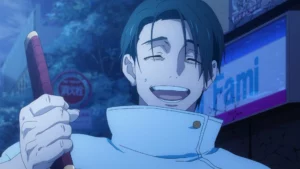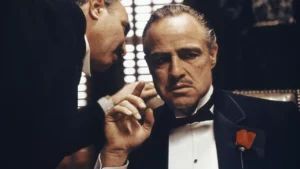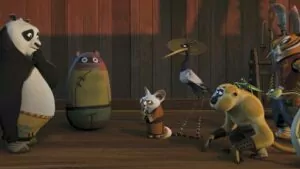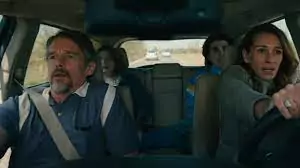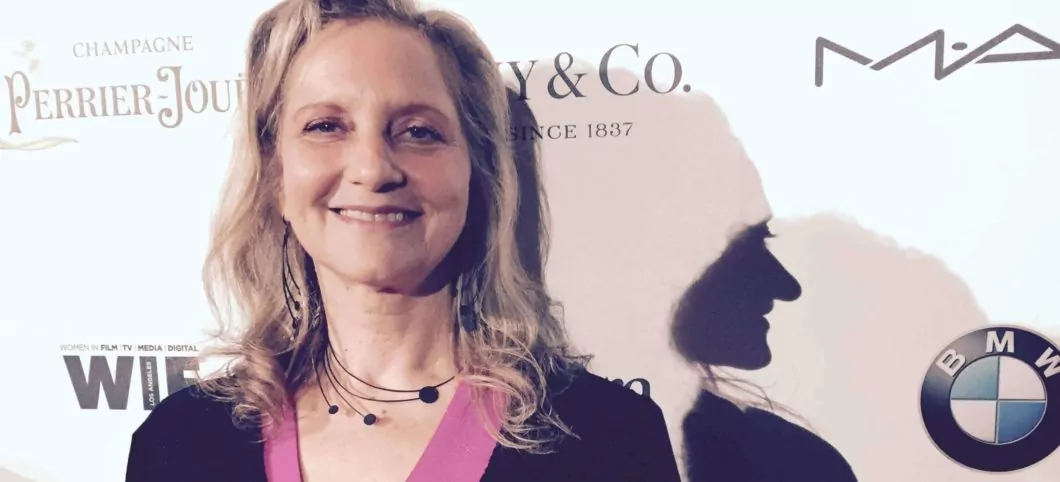
Wendy Blackstone has composed original film scores for 130 plus film and TV projects. With equal strengths in drama and comedy, fiction and non-fiction, her artistic and eclectic approach inspires her to create a unique score for each film. Determined to innovate, Wendy combines experimentation with the great musical traditions of the past. She weaves originally designed sounds with acoustic ensembles to create the best score for each film.
A native New Yorker, Wendy takes advantage of the rich cultural and artistic diversity of her city. Wendy composes in a wide range of styles: contemporary classical, downtown experimental, rock, minimalist, jazz, and Latin. Her ongoing connection with these music scenes is a vital part of her artistic persona.
After scoring the comedy Dear Diary for Dreamworks, Executive Producers Spielberg and Katzenberg became fans of Wendy’s work. According to Producer Barry Jossen, Spielberg said, “Wendy’s music took the show from a 3 to a 9.” Directed by David Frankel, Dear Diary, went on to win an Oscar.
Hi, Wendy, I am Hardik Agarwal from The Movie Culture. How are you doing today?
Wendy Blackstone: I’m fine. I’m very happy to meet you. I hope you and your family and the country as well and in my heart is with everyone.
Q. Thank you so much. So first of all, Vanishing of Cecil Hotel is an amazing show. It’s so heartbreaking and so heart wrenching and it has these elements of horror and an eerie vibe to it. It really dives deeper into the character of Cecil Hotel and to support that your ominous score for the show. It really sold me on the overall atmosphere that the docu,emtary series set out for. Would you go through the process of how you created that eerie sort of frightful effect of the score?
Wendy Blackstone: Haha, yes, I shut off all the lights. And I got scared. And I realized how to translate in to the keyboards, what I was feeling? Um, that’s a great question. And even though it’s a very poignant question, it stuns me because I have been making music for films since I was a kid. And so it’s a few decades. And so I write music for film, like I breathe. It’s wonderful, I look at the image. And the story inspires somehow a theme or many themes, a palette of instrumentation that is particular to that unique film, and to each scene, I think of the main characters, I think of the overall mood, I speak with my director and get a lot of very deep feedback from him or her and include that in my recipe for what will come out as the score for the film. And, um, you know, there were a lot of terrifying moments, I tried very, very much to get into the head of Elisa and to feel what she might be feeling. So that I could write the score that would really bring the audience as close as possible to her experience of what she was going through. And so I think that was my main process.
Q. So obviously like coming into the show, this must be like a game changer for you because it has this reality to it. Like it really happened. But you have to bring out that tension and that horror. So, taking things a little bit back. I want to know what led you into stepping on this show. And what was it about the unfortunate, deeply tragic death of Elissa that spoke to you the most?
Wendy Blackstone: I just felt heartbroken. I think most of all that nobody was there to help her. Because this could happen to any of us, just because she had a chemical imbalance that she should be forgotten. And what I love about the documentary and you know, I have a long 30 year relationship of composing music for Joe Berlinger’s films. He’s a marvelous director and friend. And I just feel that the connection, even what she was going through with the homeless people in the area, the fact that these are the Forgotten souls really, really is the heart of who I also am. I love making music because it’s an extraordinary way of connecting with people and to spend your life it’s an existential answer to many of my existential questions. But I love very much and I’m touching my heart right now speaking where we can to look at points in world that we can improve things. And so I think the essence of life is love. And I think, why not just have it for one or two people can’t we have enough love for everyone if we can, and make the world a better place. So music and scoring films and getting stories out there for me is a quintessential union of all the things that are who I am. So I’m very blessed that I found this at 18 years old.
Yeah, you started off very early. And it’s like it is clearly visible from the amount of experience that you have.
Wendy Blackstone: I was so lucky. I was a college and you know, some people hook me up with somebody and someone needed someone to help them write music for a documentary. And I didn’t even know that world. The conservatory didn’t have film scoring class. But I found the film scoring class through life. And I figured out how to do it. I learned from the greats, from Morricone to Bergman to all the people too many to think of right now. But they were my school and doing it was my school. And if I can do it, I feel anyone can, you know?
Q. So, obviously, there are so many different themes in the show. And every every theme has a different score. What is the one score, which, which you thought really changed the course of the entire show, and really elevated that atmosphere and tension in the entire show? And how did you manage to create that one particular score?
Wendy Blackstone: Oh, that’s a great question, I think there would have to at least be two. Because it’s kind of like an AB story going on, in the sense that we’re connecting with this incredible, young, adventurous, bright woman exploring life on her own. And so we had to connect with her musically through a theme or colors that would express who she was. And throughout the film, develop her changing story. We obviously don’t know everything at the beginning, but we learned so much and have to go through her trajectory together. So her theme and her colors changed throughout. I used voices, you know, that could be very, how would you say a normal idea, but playing with them, maybe affecting them in special ways, using them only in certain places? That’s the tricky part. Anyway, so Elise’s themes were huge. Obviously, this is really her story to tell many other stories. And then the scary stuff. I mean, we had to have that, this is crime scene, this is Netflix, we want to have drama, and really get into that zone. And especially I think with COVID we really all need more escapes than we ever needed before. Honestly, we needed distractions, we need them. And storytelling is a huge way to help us. I watch a film every night. And so the scary stuff, how to do scary stuff in a new fresh way. I always like to do something that’s different. I don’t want to do the same things. I’m a creative person. So what can we make up today? Um, how to make it distinctive and unique. These people work their butts off to make a great project, how can I help elevate it and add something fresh and different. And then it goes with my philosophy of life. I’m into developing life and growing every single day. Can’t I do that with my music, if I do something a little different, maybe somebody who’s listening will feel a little bit more open and live to have new ideas. I actually believe that. I don’t know if it’s true, but I believe it and it inspires me to grow and push further to new places
Q. So I wanted to ask about the intro specifically because the music and the visuals of the intro could beat a horror movie at its own game. At so many points, the intro score elevates the tension and the horror of the situation. Was that the intention from the very beginning to create an intro which would scare the living crap out of the viewer?
Wendy Blackstone: Yes, I think so. I think so. Um, I didn’t know this, because I guess I’ve done so many different kinds of genres of filmmaking and television scoring, that crime scenes and investigative stuff is really huge in the world. People love going into those places. And, so, Oh, my gosh, I mean, can you imagine coming upon a crime scene or investigating or finding looking for a killer, all these things? Oh, you have to put yourself in that situation. And convey that emotion the way we were speaking about conveying Elisa’s, you know, complicated trajectory when she goes traveling and what, you know, what happens with those. So with all the different history of the Cecil Hotel, there were so many creepy stories, and so many creepy people staying there. And then you have these wonderful web sleuths trying to help the police. So that was actually a whole another area of music, investigative stuff. And the eeriness of trying to feel like you yourself, were in a hotel that, God forbid, you were drinking water, from the water tank where this poor woman’s body was found. All those kinds of things, the visuals are brilliant, the storytelling is brilliant. But the third most important element is the music. Because this is the invisible magic that helps you connect those things and feel them on a deep, inner emotional level. And so that’s why I take my work so seriously. For six months, I was working in dark rooms, through COVID in a very complicated situation, and I felt very responsible for doing the best work I could. You can’t let your friends down. You can’t let your colleagues down. It’s very hard what they’re doing and you have to really step up.
Q. So you talked about COVID. So I specifically wanted to ask you, how was the process different in COVID? What was it like creating that score in that little tiny room, as compared to, you know, with an ensemble of musicians surrounding you?
Wendy Blackstone: It was, as you can imagine, everyone around the world is going through this in their own way. Seems like even getting food at the market was complicated, and taking care of all our loved ones and ourselves and the community was so complicated. So it was extraordinarily complicated, because I had to do engineering things that I wouldn’t normally have to do. I had to be by myself to keep myself and my colleagues safe. Recording had to be done over the internet. I had to work over the internet with my fabulous engineer. But it was hard because you know, he wasn’t in the room with me and hearing off the same speakers. You know, having speakers in two different studios having two different setups, me sending something to him, him mixing it, sending it back. Everything was so much longer in process and frustrating because music is a very delicate art form when you’re creating it The difference between two decibels on an instrument higher or lower, can change the piece radically for me. And so you need the same speakers, you need the same distance, there are so many details in this very exquisite delicate craft to finish, engineer and produce. And so it was really hard. If it wasn’t, again, my commitment to my colleagues, I would have given up, I ended up working at least 12 hours a day, six, seven days a week for six to eight months. And the cut kept changing. So it was very complicated because the editors were having their situations too. It wasn’t just my department going through COVID, it was everybody. So the whole thing was really tough. I love having guitars and whatever ensembles I’m working with in the same room. Because I speak with my hands. You know it’s almost a feeling that you can easily communicate when you’re together. So the separation was really, really difficult in this kind of situation to make good music, quickly. Tons of it, as you notice, is pretty much all music. There are barely any comments where there isn’t any music. And so I’ll tell you, it’s a miracle that it got done in my estimation.
Q. And for you to create such a mesmerizing score, with all these difficulties is remarkable. So jumping back to your career a bit. You’ve worked in so many different documentaries like ‘Warning’, which is based on addiction and ‘American Jihad’, which is based on terrorism. The subjects are different, but the theme of fear and the terror is more or less the same whether it is in Warning or American Jihad or whether it is in Crime Scene. So is this something about this tonality, which which piques your creativity the most?
Wendy Blackstone: Well, I guess I get into the subjects of them more than the genre of music that comes from what the stories are about. I guess I’m in part known for my commitment to things that are happening, that are important to our world, that are important to the people that we know. These kinds of things are so meaningful, I guess because I think my heart writes the music. I think our emotional connections with these topics are huge. Of course, the intellect has a big role in it. If it was just my heart, I would just be writing really loving, beautiful themes all the time. But my intellect is interested, as you know, with trying to find new sounds, new pallets to move people forward audio revolutions, I call them, little audio revolutions. So you know, I have to admit, I’m a very political person. I like being involved because I think politics are just kind of conversations on a bigger level of what’s going on personally. You know, it has a harsh name, but it’s about community and what’s going on in the world. So how can you not feel if you care about the small groups of people and your own family care about the big one? To me, that’s just natural connection. Oh, Jihad. I mean, again, working with the fabulous friend director, Alison Elwood. You know, I mean, I was very interested into that topic. And of course I like that music if I think about it. Drama and tension and, and those kinds of things, but always finding an amazing theme. I learned from my older father, who was in the sewing business. Nobody in my family was in the music business. But my dad said when you come out of a movie, in terms of the music, what you remember is the theme and even though he didn’t know, he knew something very, very wonderful that stuck with me because at that moment, I came from downtown Manhattan. I was working with all the wonderful, crazy instrumentalists like Mark Rebo, Rob Schwimmer, Mark Stewart, John Zorn, the crazy wonderful people that I absolutely love. And I was so into that, because again, it was trying to change the world with music, different kinds of stuff. But then dad said that, and that’s who I was, when I was 13, I was writing beautiful melodies. I didn’t know what they were that it was called composing. I was just a natural Melody Maker or theme maker. So I came back to that, because I had kind of gone away a little bit from that. And I said, Yes, if I want to connect with people, which is what the music is all about. Then I have to include it all. And that’s who I am now, musically, this combination of always wanting to find at the beginning of American Jihad, that beautiful theme, but then also having those kind of weird, eerie, fearful cues so that people understand the story better.
Q. Yeah, exactly. So you mentioned that you started off, you know, your father is your inspiration and how he inspired you into into composing and everything. So basically, you’re one of the first women to actually get into composing. You started at the age of 18. Back in 1980s, 1970s, when no other woman was actually doing this stuff and then you went into that, and you, you’ve created soom, and you’ve created over 100 films and TV shows and documentaries and whatnot, even in theater. So what would you say about your experience as a woman composer? And how has that changed over the past 30 years?
Wendy Blackstone: Oh, that’s a great question. First, I must say my dad was not supportive of my composing and didn’t leave me there. It was totally me. Dad wanted me to become an oceanographer, because he had lost the opportunity and wished and I like science too. But he lost. What what made me whatever I am, is just pure passion. I found my place in the world and how to spend so much of my life in dark rooms happily making music that would reach people without me having to be in front of their face on a stage. Because I was never good. I performed in orchestras and Latin bands, and jazz bands and rock bands. I was always quiet in the back, and I didn’t feel so comfortable. This was the place I felt comfortable. And I could get my ideas, my love for being in museums, and art and visuals and film, and music making all in one thing. So out of pure insanity, passion, and tenacity, I just said, I have to do this. And I kept on doing it and kept on doing my best until I had enough pieces and films like 30 Films, done in New York. And then I went out to LA, and the fabulous Brian Loucks at creative artists signed me as the first female film composer to creative artists. Where other agencies would not take a lady composer. I was not the only woman, Shirley Walker was the goddess before all of us. And then there were some women all around the world who were doing this, but very few. When you don’t think about your gender, and you just say, Oh my god, I can do this because you’re crazy. You just like this, you go forward, and you don’t think about it. And this is true. If you’re in a group that is not considered the norm. You just have to put your blinders on and say, I’m doing it I don’t care how many rejections I get. I know I would be a very different place with my talent. If I were a male, I bet you $5 billion because, I mean, I’ve just seen it. I’ve seen it all along and you know documentaries are extraordinary and my cup of tea, but they also have lower budgets. So it actually is an economic thing to the big budgets most normally go to the big guys. So you know, but the whole world is slowly changing. And it feels like it’s been exponentially changing. Within the last, I don’t know, five, eight years, something is going on. And organizations are changing by getting groups of people together to push our visibility. And so things are changing. And that’s really kind of gorgeous. People from different ethnicities, people from different colors of skin. I mean, how crazy is that you have a different color skin, so we think you can’t do it. That is the stupidest invention in the world. I mean, let’s not get into that. But all this stuff. So things are slightly changing. But if I wasn’t as tenacious and in love with what I do, and if there weren’t some wonderful people that did give me opportunities along the way, I would never have accomplished what I have. I also found an incredible partner in life, we got married and in two days, I had to go out to the west coast to do a television series, you have to find the right partner too.
Q. That’s such an inspiration story. And you explained it in such detail, in such a profoundness that I’ve actually, you know, got into a sort of retrospection of my own. But yeah, coming back to different documentaries and TV shows and movies and whatnot. Your theater scene, I specifically wanted to talk about that, and you have scored music for some really critically acclaimed shows like Ma Rainey’s Black Bottom. What is different about working in theater as compared to scoring a series? And what are the creative differences that you face?
Wendy Blackstone: Oh, well, thank you. That was amazing that I got an opportunity to work in theater with two brilliant people. Oh, Anna Deavere Smith and George C. Wolfe. George C. Wolfe just did Ma Rainey which is a brilliant film. To me it’s like Shakespeare, I am such a huge fan of that film. And George C. Wolfe is a brilliant director. And Anna Deavere Smith is legendary. So I was blessed, first I went to the Public Theater in New York, and then went to court Theatre on Broadway. And I was the happiest person, I’m from the Bronx, from a very humble background for a young woman composer to score a film that gets to Broadway. And she did it basically, on her own. I mean, I can look at myself, objectively how beautiful and cool is that, that means anybody can do anything. If they try and work hard enough, and passion. It was very different scoring theater at that stage, we were not allowed to record anything. It was just against the law. So I had to just remember the scenes, as opposed to when you’re scoring film, you have the luxury of revisiting that scene as many times as you want. And so you can very carefully score against the picture. With theater, I could go home. And remember the scenes and there were a lot of pieces of segway music, you had the opening and the close, and then all these scenes to segway, transition cues. But they all had different characters. Anna kept on changing ethnicity and gender and location. So each cue had to speak to that. And and I wanted to do live recording. So it was really hard. in theater, they’re constantly rehearsing and shaping and sculpting. So it was constantly changing and sculpting and changing. And so it was, again one of those situations you said, I have to do it. And there’s no saying no. When you tell yourself you have to do something, you will do it. Whatever it is. It’s amazing. Aren’t people incredible?
Q. I mean, every answer your your’s is like so inspirational and it makes me want to do something which is extra productive right now. So there’s so much variety in your work. And I feel like none of your two consecutive projects are remotely similar, like you go out of your way to choose the stuff which challenges you, which makes you want to, you know, really work that creative side of us and bring something new to the table. So what’s next for you after crime scene? And how different is it from crime scene?
Wendy Blackstone: Uh, yeah, I had a bicycle accident. If not, I would have continued crime scene. They’re going through to another season, but I was I had a crazy bike accident. So I had to take a break.
Q. Oh, are you fine now?
Wendy Blackstone: Totally. Hey, one accident every few decades is okay. Um, but I love bike riding, walking and bike riding allow me to think expansively, and also looking at stars, I’m into astronomy. Astronomy lets you think really big. And it puts you in your place. So you realize everything in a better perspective. Um, so yeah, I’m getting ready to do something big and awesome for HBO. I am not supposed to say what it’s about, but it’s gonna be of four hours, and it’s gonna be totally cool. And if you and I speak again, I’ll tell you more about it. But I’m very excited about it.
Q. I am looking forward to speaking with you again. I mean four hours, is that a show or a movie?
Wendy Blackstone: It’s a show, it’s going to be a two night special. It’s going to be amazing. It’s going to change the world.
Q. I am insanely excited about it. I mean, you’ve hyped me so much about it that I just I want to speak with you about this again. So finally, you have come a long way from Lodz Ghetto, to Crime Scene from 1988 to 2021. What is the One prominent thing that you’ve learned throughout all these years as a composer? And what do you take away from all of this?
Wendy Blackstone: Well, number one, like most people say, I feel so grateful to have found a road in life, where I could use who I am in a great way for others, and also that I gave so much back to me, that it combined everything I love about life, and that I could actually share that with so many other people. A lot of these shows 14 million people would see them, oh my god, that my music was reaching all those people, what a beautiful feeling. And so I think that’s the huge takeaway. I don’t like to look so much at myself. But I like to look at myself as an example of people. And I say, Well, I think we humans can be extraordinary if we set our heart and mind to it. And I tried to keep on the positive side. I think news feeds us a lot of negativity. But that’s not really all that’s going on at all.
So much positivity needs to be told.
Wendy Blackstone: Yes, we have to put out the positivity so that we bring in more light into the shadow, we need both, but let’s bring in more light. Um, I think I always get better at my craft with every new film, because each film teaches me something new. And I never stopped learning. I will be 120, I hope, and still listening and learning from the greats that preceded me. I watch films because my husband’s also film lighting person and photographer, and film expert. And so we watch films, but I always listened to the scores. I learned so much from all the teachers that came before me. I knew Elmer Bernstein and Dizzy Gillespie, Barry Harris. Um, all these incredible artists that have come through my life. I know I score films, it’s storytelling. It’s Visual, it’s music all in one. But I am constantly embracing everything in life and bringing that into my music. I think that’s very important to keep your mind open, and take in everything you can so that you can bring as much as you can into whatever you put into your score. And the one constant for me is my dedication to the filmmakers. I don’t know why I’m hardwired that way. But I feel if somebody gives me that responsibility, I’m going to do absolutely everything in my power to give them the best I can.
Q. The best kind of attitude to have. So thank you, thank you so much, Wendy, for interacting with me, it was such a pleasure to talk with you, to learn so much about about you and from you, about how inspirational your journey is, about your technicalities and the way you you do stuff is just mesmerizing, and truly inspirational. And it has forced me to do something actually productive right now. Like I’ll actually, you know, go ahead and do something which is productive right now. So thank you, I really look forward to speaking with you again about that HBO show.
Wendy Blackstone: Thank you. It was a great pleasure. And if I inspired you that made my day. You made this conversation happened so you obviously have talent, and I know you’ll do great in whatever you do, because you already are.
Thank you so much, ma’am.
The Movie Culture Synopsis
Crime Scene: The Vanishing at the Cecil Hotel is currently streaming on Netflix. Go ahead and check out the show if you are interested in the breath-taking atmosphere that Wendy Blackstone has created with her score.
